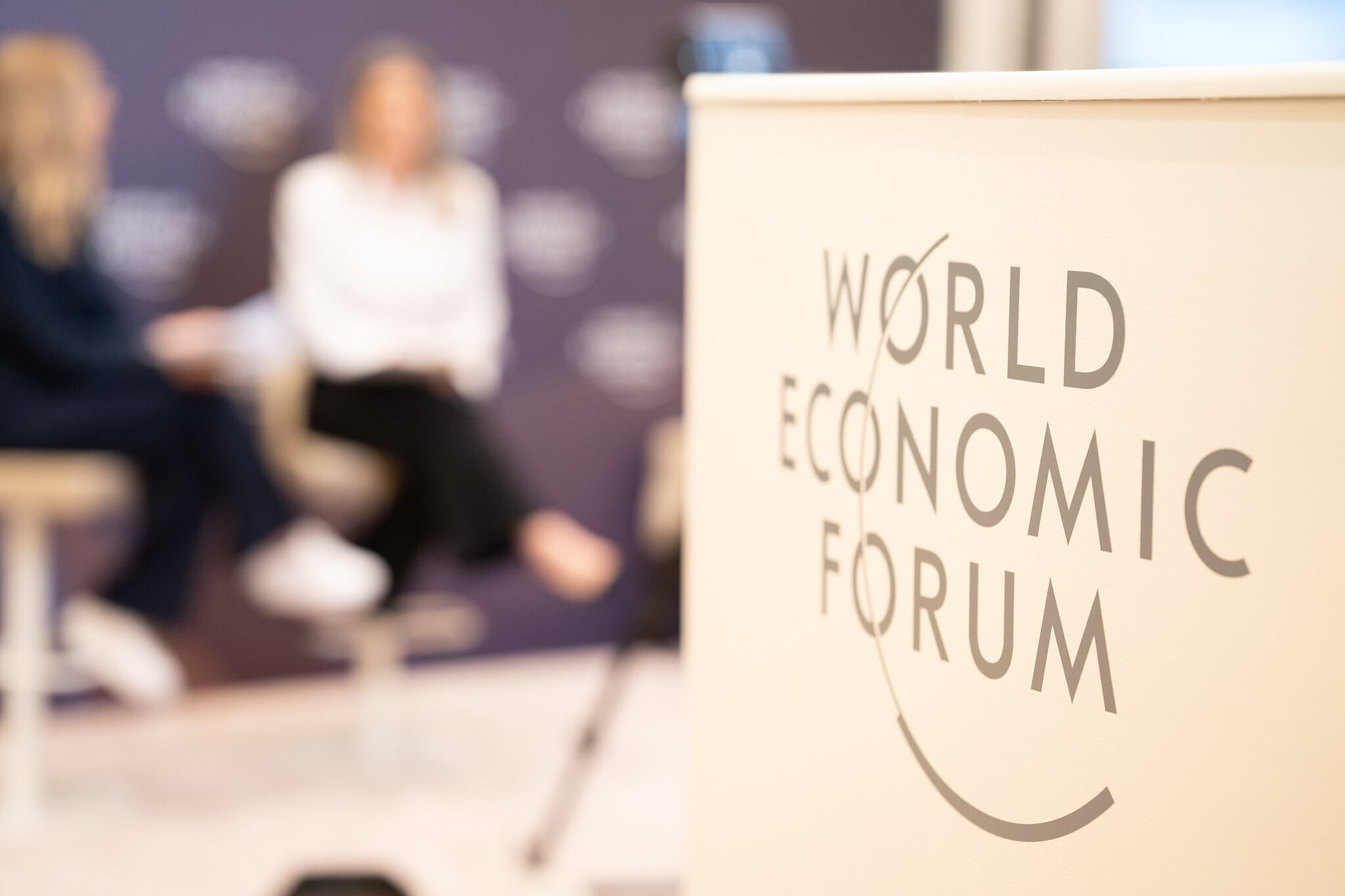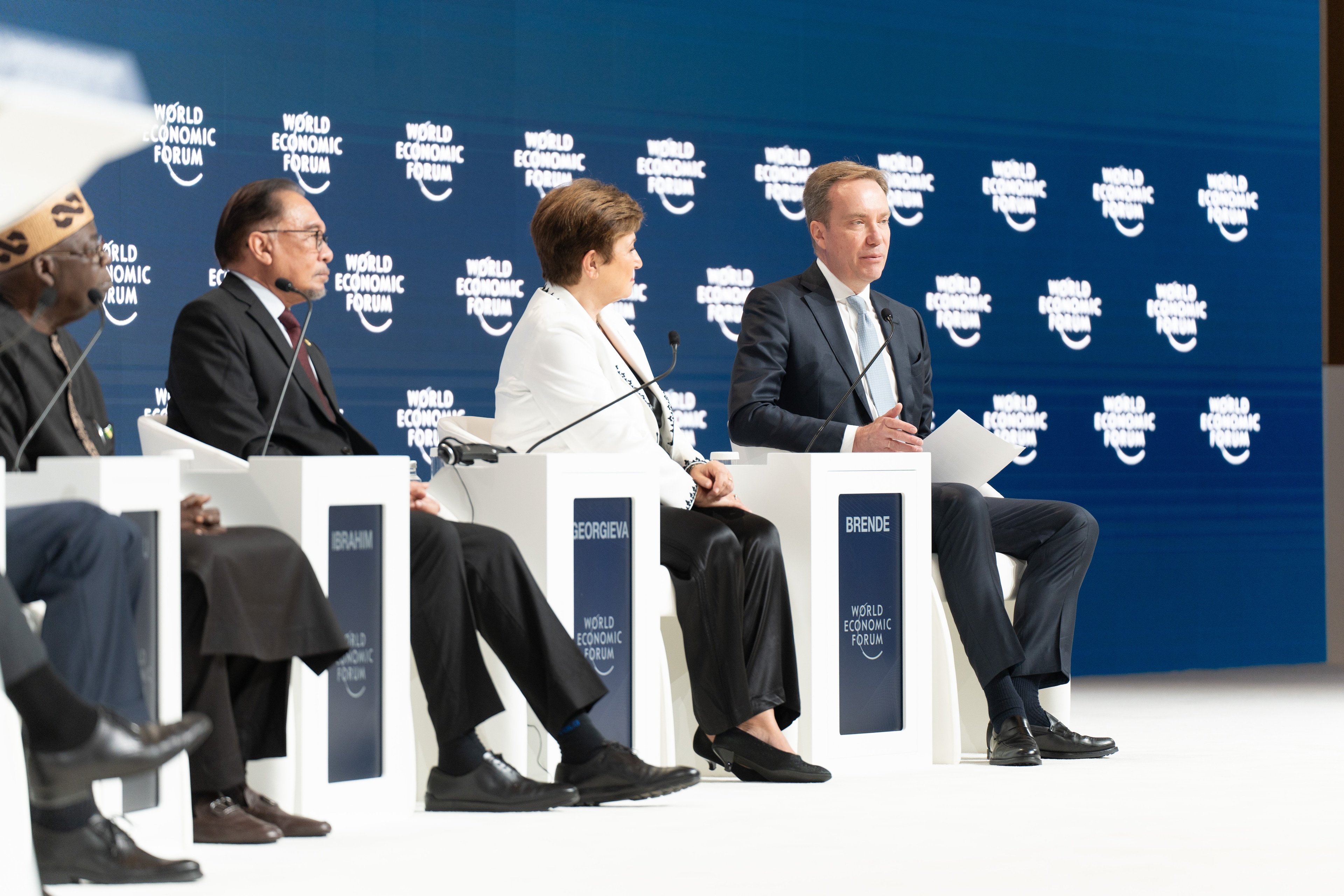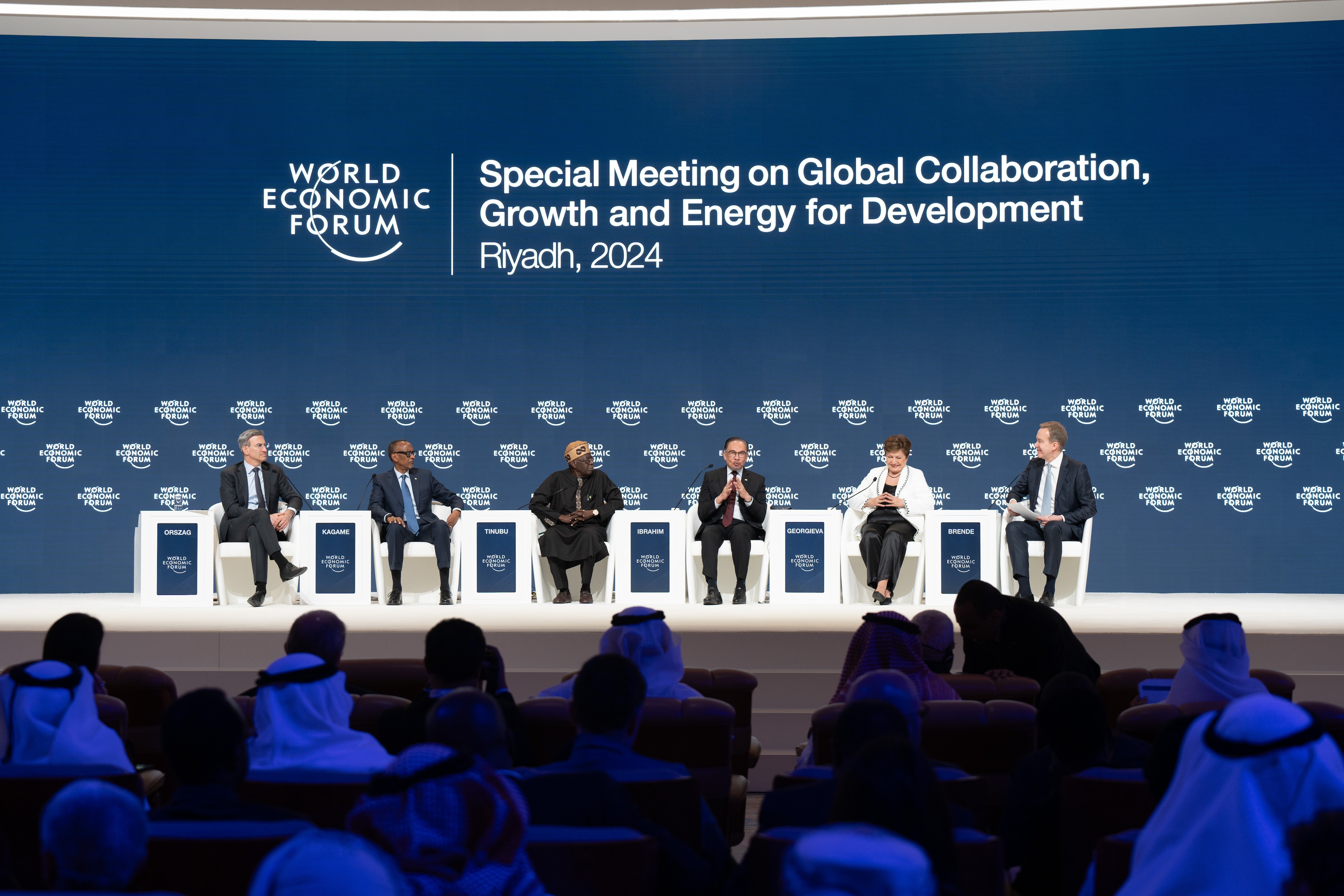China formally accepts WTO agreement on harmful fisheries subsidies at AMNC23

WTO Director General Okonjo-Iweala meets with Wang Wentao, China's Minister of Commerce, in Tianjin, China. Image: World Trade Organization

Get involved with our crowdsourced digital platform to deliver impact at scale
Stay up to date:
Davos Agenda
Listen to the article
- China has agreed to a World Trade Organization (WTO) deal aimed at curbing harmful fisheries subsidies.
- The announcement was made at the Forum's 14th Annual Meeting of the New Champions in Tianjin, China.
- WTO Director-General Ngozi Okonjo-Iweala said the “agreement is critical to multilateral efforts to safeguard oceans, food security, and livelihoods.”
China has formally accepted a World Trade Organization (WTO) agreement aimed at curbing harmful fisheries subsidies. The announcement by the world’s top fishing country was made at the World Economic Forum’s 14th Annual Meeting of the New Champions (AMNC) in Tianjin, China.
“China's support for the implementation of this agreement is critical to multilateral efforts to safeguard oceans, food security, and livelihoods,” WTO Director-General Ngozi Okonjo-Iweala said in a statement.
Fishing subsidies have long been a driver of overfishing and destructive fishing practices. In recent years, global fishing subsidies have amounted to upwards of $35 billion annually — 60% of which have been deemed harmful in various surveys. Moreover, research shows that harmful fishing subsidies have global impacts. One study found that up to 37% of all harmful subsidies support fishing in foreign waters or the high seas.
By curbing harmful fishing subsidies worldwide, we can together forge a path towards a legacy of abundance and opportunity for generations to come
”The WTO’s Agreement on Fisheries Subsidies, which was adopted by consensus in June 2022, sets multilateral rules aimed at protecting fish stocks. The deal prohibits subsidies for illegal and unregulated fishing as well as the fishing of depleted or unmanaged fish stocks. Furthermore, the agreement aims to address harmful practices like reflagging fishing vessels and introduce new transparency rules.
In a statement, China’s Commerce Minister, Wang Wentao, hailed the agreement as “the first WTO agreement aimed at achieving the goal of environmental sustainable development” and a “significant agreement to boost the confidence of all members in multilateralism.”
Wang added that China would work to push the deal into force before the 13th WTO Ministerial Conference, which will be held in February 2024. The agreement will come into effect after two-thirds of WTO members formally accept.
So far, the deal has been accepted by other major fishing countries such as the United States, Canada. The European Union also accepted the agreement.
China's acceptance has been praised by ocean conservationists.
“I see this as a milestone step for our human society trying to rebuild the balance, the harmony between the coastal fishing communities and our seas,” Songlin Wang, the founder and President of Qingdao Marine Conservation Society, said during an interview at AMNC.
Don't miss any update on this topic
Create a free account and access your personalized content collection with our latest publications and analyses.
License and Republishing
World Economic Forum articles may be republished in accordance with the Creative Commons Attribution-NonCommercial-NoDerivatives 4.0 International Public License, and in accordance with our Terms of Use.
The views expressed in this article are those of the author alone and not the World Economic Forum.
The Agenda Weekly
A weekly update of the most important issues driving the global agenda
You can unsubscribe at any time using the link in our emails. For more details, review our privacy policy.
More on Forum InstitutionalSee all
Maroun Kairouz
May 3, 2024
Gayle Markovitz
April 28, 2024
Gayle Markovitz
April 27, 2024
Mirek Dušek and Maroun Kairouz
April 27, 2024
Kate Whiting
April 26, 2024
Spencer Feingold and Gayle Markovitz
April 19, 2024





